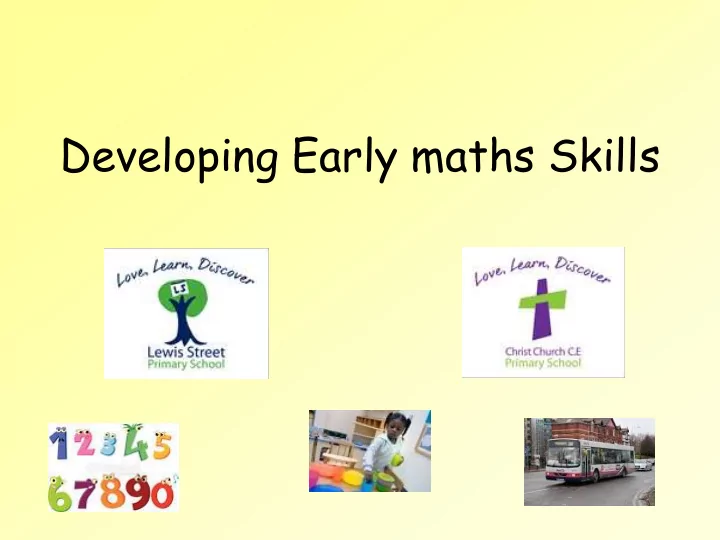

Developing Early maths Skills
First skills Children learn very basic maths skills from an early age – skills like colour recognition , size , matching , shape and pattern and counting orally. Through play and talk children are already developing a good mathematical foundation.
Environmental Maths Children will then begin to notice maths in the world around them . They will see numbers on their house, birthday cards, on buses and trams, colours on their clothes, toys signs, in the street etc. They will notice how things are different sizes ie; shoes, cutlery, cars and how shapes are eveywhere ie; packaging, on buildings and in our homes.
In school we encourage maths through play in the first instance. Here children are using numbers and matching quantity as they play
Children show an early curiosity about numbers and numerals in different areas of the class
Here the 1 st child is drawing different sized bears and the 2 nd child has paired dolls and gives each pair a blanket .
We encourage children to categorise objects according to properties such as shape or size
They also show curiosity about numbers by offering comments during role play This child said her phone number and pressed the corresponding digits on the defunct phone
Moving towards recording Children then become keen to record their new found maths skills. This can be as simple as colouring and choosing named colours, to writing known numerals and patterns they see.
Through play, this child knows that numbers identify how many objects are in a set and she records it visually
Children learn to recognise some numerals of personal significance This stocking has a house door with a number 11 on it so that Santa knows which house to come to
Learning indoors often transfers outdoors onto larger more physical level
Adult modelling of mark making; then the child engages physically by jumping and counting. Other children mark make with chalk and brushes
Developing sorting and matching is recorded visually here in an organised way.
Here the child is working towards recognising numerals in play at first, then through recording on paper.
Children like to use mathematical tools for measuring and mark making too.
How to help at home. • Recognise and encourage maths in the world around you as you live and play. • Use as much correct vocabulary as possible ie; largest, more than, circular. • Record simple maths they discover- a drawing of the 66 bus, make a birthday card etc • Use our “environmental number hunt” to have fun with maths!
Recommend
More recommend